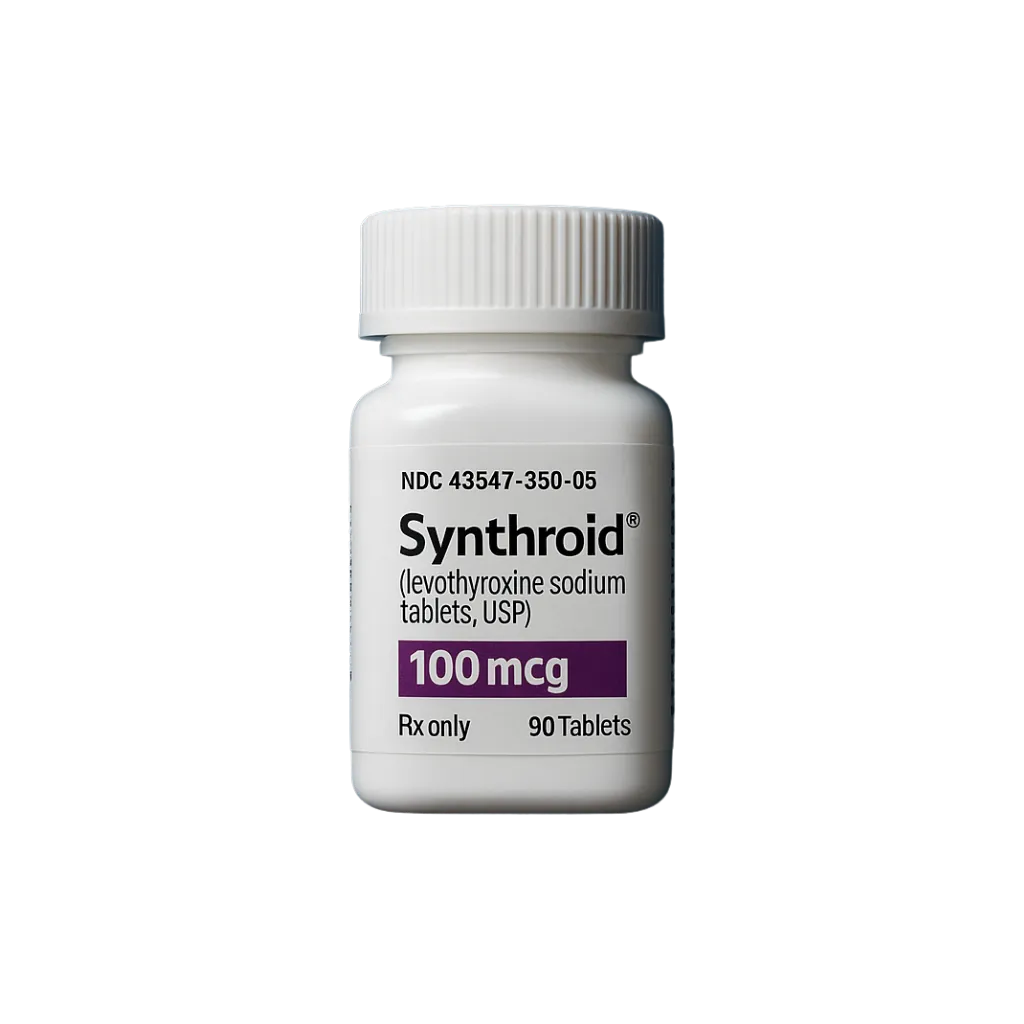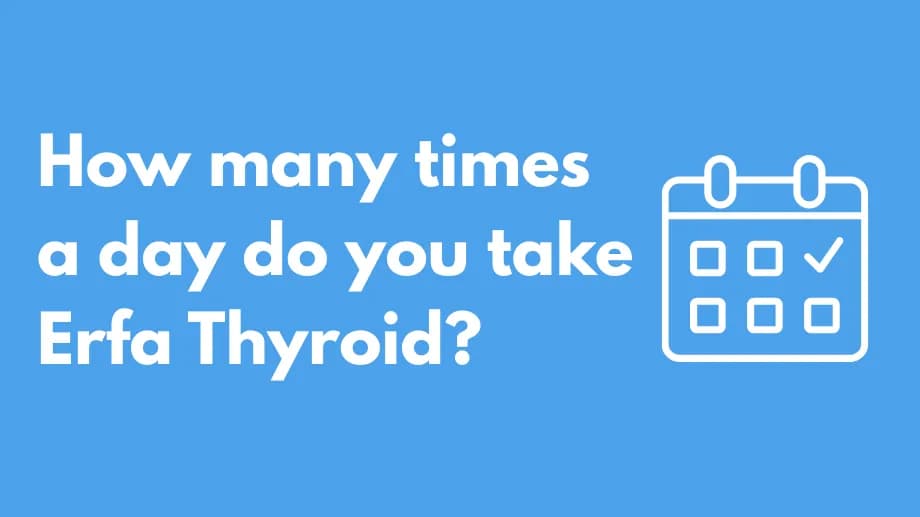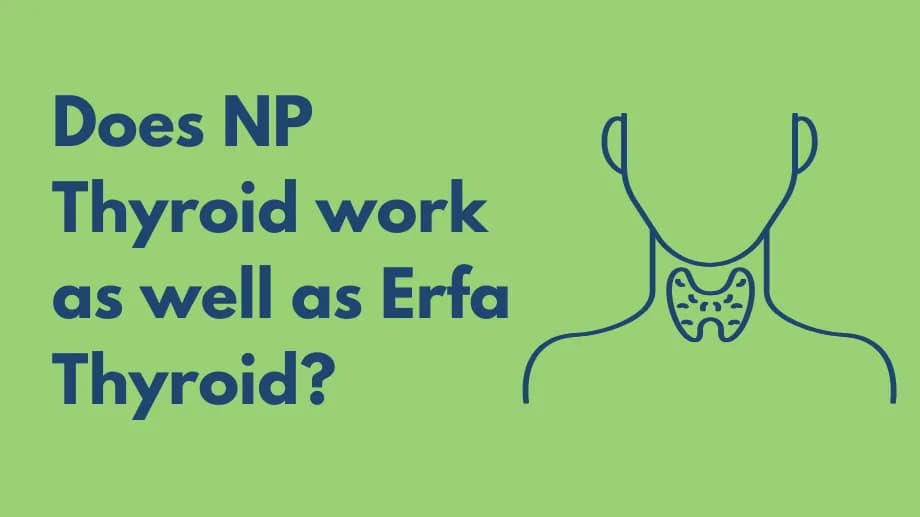Why can’t I have coffee with my erfa thyroid?

How to take ERFA Thyroid
ERFA Thyroid (natural desiccated thyroid or NDT) contains two thyroid hormones, triiodothyronine (T3) and thyroxine (T4), derived from pig thyroid glands. It is used as hormone replacement in hypothyroidism. Your provider will start a low dose and adjust based on your response and thyroid blood tests. It may take several weeks before symptom improvement.
Administration guidelines
- Take on an empty stomach with a full glass of water
- Wait 30–60 minutes before your first meal
- Take at the same time each day
Substances that reduce absorption
Wait at least 4 hours after ERFA Thyroid before taking:
- Fiber, iron, and calcium supplements
- Antacids containing calcium, aluminum, or magnesium
- Proton pump inhibitors (lansoprazole, omeprazole)
- Simethicone
- Cholestyramine and similar bile acid binders
Avoid near-dose consumption of:
- Coffee
- Soy products
- Grapefruit and grapefruit juice
- Raw cruciferous vegetables (broccoli, kale, cauliflower)
- High‑fiber or high‑calcium foods
Common types of thyroid medications
- T3 only: liothyronine (Cytomel)
- T4 only: levothyroxine (Synthroid, Levoxyl)
- Combination T3/T4: separate tablets or compounded
- Natural desiccated thyroid: NatureThroid, WP Thyroid, Armour Thyroid, NP Thyroid, ERFA Thyroid
Shop Medications
Side effects of ERFA Thyroid
Most side effects occur when the dose is too high and mimic hyperthyroidism:
- Headache
- Nausea, vomiting
- Irregular heartbeat, chest pain
- Trouble breathing
- Hair loss
- Irritability or anxiety
- Tremors
- Diarrhea
- Muscle weakness
- Trouble sleeping
- Skin rash
- Irregular menstrual periods (females)
- Weight loss
Rare but serious (seek immediate medical attention):
- Allergic reaction (hives, swelling, shortness of breath)
- Heart attack (chest pain, sweating, dizziness, rapid pulse)
- Heart failure (shortness of breath, fatigue, swelling in hands or feet)
Other medications affecting absorption
- Antacids (Tums, Mylanta)
- Proton pump inhibitors (Prilosec, Nexium, Prevacid)
- Insulin and oral diabetes drugs
- SSRIs (Prozac, Zoloft)
- Tricyclic antidepressants (Elavil, Norpramin, Sinequan)
- Birth control pills and hormone replacement
- Antibiotics (Cipro, rifampin)
- Cholesterol‑lowering binders (colestipol, cholestyramine, colesevelam)
- Blood thinners (warfarin)
- Lithium
- Phosphate binders (sevelamer)
Causes of hypothyroidism
- Hashimoto’s disease (autoimmune attack on thyroid)
- Thyroid surgery (partial or total removal)
- Radiation therapy to neck or head
- Medications (lithium, amiodarone)
- Thyroiditis (inflammation from infection or autoimmunity)
- Congenital absence or dysfunction of the thyroid gland
- Pituitary disorders (low TSH production)
- Pregnancy‑induced hypothyroidism
- Iodine deficiency
Sources
- Garber J, Cobin R, Gharib G, et al. Clinical practice guidelines for hypothyroidism in adults. Thyroid. 2012;22(12):1200–1235. DOI:10.1089/thy.2012.0205. Accessed Feb 7, 2025.
- Thyroid desiccated (Rx). Medscape. Accessed Feb 7, 2025.
- Armour Thyroid – thyroid, porcine tablet. DailyMed. Accessed Feb 7, 2025.
- ERFA Thyroid. Desiccated Thyroid C.S.D. Human Rights and Equity Services (HRES). Last update 5/2020. Accessed Feb 7, 2025.







